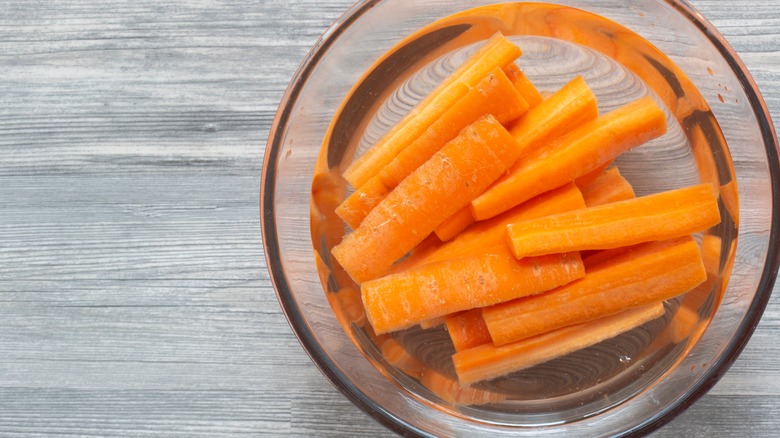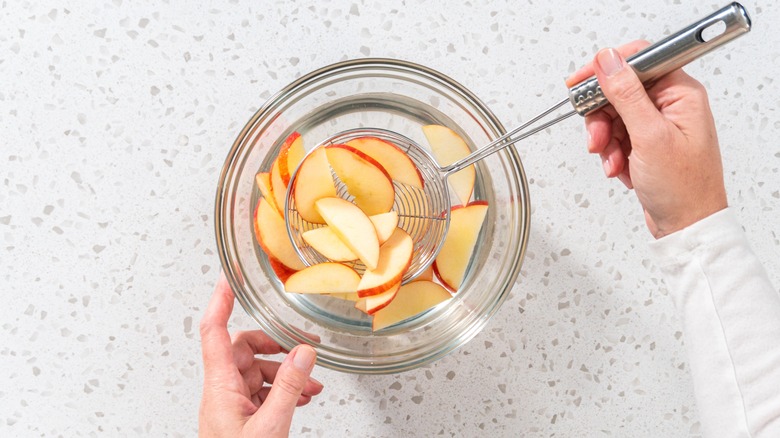The Step You Cannot Skip If You Store Produce Submerged In Water
Refrigeration is a common method for maximizing the freshness of most fruits and vegetables. However, if produce has already been peeled or cut up, the cold temperature in the fridge will only dehydrate them. Dense and hardy produce like carrots, celery, and cucumbers lose their crunchiness, plus the exposure to air turns the flesh of apples and potatoes brown. Avoid this by storing peeled and cut produce submerged in fresh, cool water.
Preparation and proper maintenance are needed for this tip to work. First, before peeling and slicing the produce, wash off any dirt with cool running water. Once your produce is in the water it needs to be checked regularly for cloudiness, a sign it needs to be changed. Replacing the water every four to five days is necessary to prevent bacterial growth. Finally, before serving or cooking your produce, give it another thorough rinse under running water.
As a method for retaining moisture, submerging peeled and cut produce in water allows you to store carrots so they stay crisp for three weeks while celery sticks remain crunchy for two weeks. It also lets you do advanced prep work with apples and potatoes. Apple slices stay good for six hours submerged in cool water, while peeled potatoes keep for 12 hours. Prep and store them in the morning so you can anticipate snacking on some apple slices sprinkled with salt and pepper in the afternoon or roasting your potatoes in butter for dinner.
Submerge certain fruits in water to preserve their quality
Aside from preventing cut apples and potatoes from turning brown, another benefit of this storage method is that the water will rinse off the damaged cells in their flesh so they better retain their flavor and crunchy texture. Apples are climacteric fruits, meaning they continue to ripen after harvest by producing ethylene. Submerging them in water delays this process. Keep apple slices from floating by bundling them together with a rubber band. Cover the surface of the water with a large paper towel so once it has absorbed sufficient water, it'll be heavy enough to keep the fruits from breaking into the surface.
Although non-climacteric, whole lemons can also do with an overnight water soak so they don't lose moisture and develop a tough rind. Be aware, though, that the longer they're kept soaking, the more sour their juice would be, with their natural sugars and flavor compounds leaching into the water.
Not all fruits and vegetables can be stored this way, however. A TikTok food hack advised doing this with uncut avocados, but the FDA warns that pathogens such as Salmonella and Listeria monocytogenes that live on the avocado peel's surface could multiply while the produce is stored in water. The agency further explains that Listeria could seep into the peel and reach the pulp within 15 days of storage. Washing and disinfecting the avocado surface before slicing can't counter this kind of contamination.

